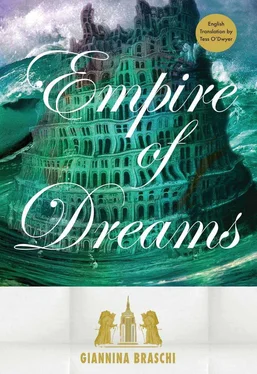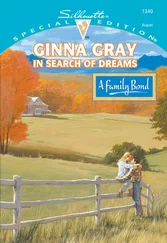Listen to me, ladies and gentlemen. Listen to the sermon of memories and sorrows. Listen to hell. Why didn’t I do what I should have done. I repent. I have sinned. I have memories. And torments. I am burning in the flames of memories. Why didn’t I keep quiet? Why did I do that? I repent a thousand times. Why did I betray you, and why do I remember you? Oh woe, woe’s me! Oh, and I left you standing in the street. Listen to memories. Listen to them again. Why did I betray you? Why did you leave and forget me? And I grieve and remember you. And the worst were my tears. And the worst was remembering you. Listen to the soap opera and listen to memory. Oh! Now what’s left for me! Just monologues, soliloquies, and memories. I’m left with shadows. I’m left with memories. I don’t want monologues or sorrows or soliloquies. I am a singing bird. I am a child. I am the nightingale. What does winter or autumn or spring or summer know of memory? They know nothing of memory. They know that seasons pass and return. They know that they are seasons. That they are time. And they know how to affirm themselves. And they know how to impose themselves. And they know how to maintain themselves. What does autumn know of summer? What sorrows do seasons have? None hate. None love. They just pass.
Sermon of memories and sorrows. Sermon of everything negative. Sermon against senechism and hedonism. Sermon in favor of Bacchus and Faustus. Affirmation of the horror of the void. Of the horror of memories. And of the horror of silence. And the panic I feel every time I hear that all my memories have died. And I walk through the streets of New York alone. Without memories. And Giannina has burned the memories of the world. Burned the books of memories. Burned their mediocrity. Burned their memories. Burned their negations. So everything is said. So everything is said. So nothing is left inside. So spirit doesn’t surpass matter. So summer doesn’t outdo autumn. So nostalgia becomes impossible. Burial of melancholy. Poor thing. It died on Third Street. And I didn’t care. I didn’t grieve. Oh, woe, woe’s me! Memories died. And I’m not mourning them. And I am a shepherd. How strange. This is the first shepherd that isn’t grieving. Listen to her. She is a shepherd. And she is happy that her memories die. Happy that grief dies. Happy. Happy. And feels as happy as bells and stars. And she is a shepherd. And feels absolutely no grief at all.
Memories walk around dressed up as old men. But they’re not old. They’re hypocrites and gossipers. I love gossip. But I hate memories and sorrows. I like — he told me and I told him, and we fell in love, and rode off into the sunset, and lived happily ever after. I like the sun and the beach. I like sidewalks. And soup and beets. I like men and women. And I like mountains and seas. I like fire and water. I like trashy movies and novels. I like tackiness and gossip. Most of all, I like to forget everything. Especially memories. I am forgetfulness. And nothingness. I am joy, well-being, and happiness. I am laughter, gossip, and pantomime. I am the idiot and the prince. I am the grain of rice and the bean. I am the chickpea and the casserole. I am the red apple. And salt and pepper. I am the shepherd of life. I am the shepherd of memories, which I love despite everything. Affirming is everything I love and everything I hate. Affirming. And living. And denying. Affirming everything.
I am Giannina. And now it’s my turn to rock and to affirm movement. As I affirmed the denial of memories. But what I deny is as powerful as what I affirm. Power is in my flesh. In my life. In speaking as I want and feel. I like to expect a lot. I do expect a lot. There are many ways of expecting. An ad is expected. Dinner is expected. Christmas is expected. Santa Claus is expected. Death is expected. Love is expected. The weekend is expected. A party is expected. Night is expected. Spring is expected. A baby is expected. A trip is expected. News is expected. Forgetfulness is expected. An invitation is expected. Hope is expected. Memories are not expected. They just come. Old age is not expected. It comes. Not death. It always comes. Not memory. It always comes. Not love. It always comes. Not forgetfulness. It always comes. Not children. They always come. Not happiness. It always comes. Not friends. They always come. Not memory. It always comes. Not Giannina. Always. Always. And now it’s my turn to rock from side to side.
And now. If you see a shepherd of medium build. Small. With brown eyes gazing at the stars. Who has a smile on her lips. And perfect ears. Who wears a beret. Or a sailor’s hat. If you see her walking with red slippers. If you hear jingle bells. If you see that she has rosy cheeks. And if you see that she has dimples. If you see that she looks at you and doesn’t stop staring. If you see that she smiles. And greets you. If you see that she doesn’t get tired of walking and dreaming. If you see that she gazes at the sky and the clouds and the stars. If you feel good and fall in love with her when you meet her. If you don’t leave her alone. If you touch her. And touch her. And touch her. And take off her cap. And her red vest. And lie beside her. And speak to her. And you’re surprised that she knows so much without knowing anything. And that she is so profound without being profound at all. And that she understands everything without understanding anything. And that she is the most famous shepherd in the world without having any fame at all.
The damned newspapermen are here again. What do you want now? Tell me. What do you want from me? We would like to know if drunkards, buffoons, and madmen collaborated with you, Giannina. We would like to know if you have already understood the meaning of the shepherds. We would like to know the difference between being called Giannina and being called a clown. We wish to know if you, Giannina, were at the banquet. And if you were the one who laughed and cried at the time. Tell us, Shepherd Giannina, what difference is there between a purple sunset and an orange one? What difference is there between the moon and the sun? Between being a drunkard and a shepherd? How many years did it take you to write the book? Why do you talk so much about shepherds? Who was the first astronaut who stepped on the moon? You also mention the batting of eyelids. And why did you leave the eyebrows out? Why didn’t you paint the lips of the buffoons? Why did the fortune-teller read the past and not the present? What was the sky, and what was the night, and what was the day? Who were the porters? Why were the doors closed? What produced the orgy? And why are there more than five eggs? Why the newspapermen? And why the shepherds? Why a book like this, Shepherd Giannina? Why?
The child is innocence and forgetting, a new beginning, a game, a self-propelled wheel, a first movement, a sacred “Yes.”
— Nietzsche, Thus Spoke Zarathustra
Here. Astride the top of nothingness, I suddenly receive the call of death. Who, in passing, tells me that it’s nothing. Nothing more than the absence of the word itself. Nothing more, and simply nothingness. Buds or roses. Lilies. Or emeralds. Smiles. Or teeth. Biscuits. Or birthdays. Visits. Or gatherings. Friends. Or acquaintances. Men. Or children. Old people. Or passersby. Bicycles. Or carriages. Airplanes. Or elevators. Tricycles. Or stairs. Stores. Or display windows. Clubs. Or coffee shops. Places that have just pulled away. Or faraway places. Absentees. They are all being eliminated. They are all testifying to the song of nothingness. To the song of forgetfulness. To the very return of nothingness. To my taking a step down. And I’ll take another step down. And another. Until I reach the floor. To the very door of my exit. To the very tunnel of the womb. Or death. Or tomb. Or nothing.
Читать дальше












